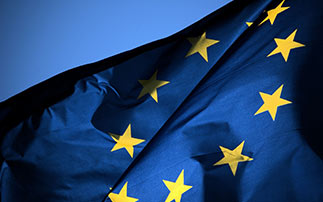Are you an NGO with a development project that you want to implement? Do you want to find funding and know which European grants might be suitable for your project? Do you have questions about applying for funding?
Focus on five types of grants that can boost your project.
Note: as a general rule, non-governmental (not-for-profit) organisations are eligible for the 3 main families of EU funds (cohesion policy funds, intra-community programme funds, and external cooperation). The aim of this article is to encourage NGOs with projects under development to apply to the most relevant programmes.
For local/regional projects: ESF+ and ERDF
The European Social Fund (ESF+) is intended to allow the financing of projects focused on employment, education, training and the fight against poverty and food insecurity. The management of the programme for example in France is shared between the Regional Councils and the State (DREETS).
The Regional Councils manage the themes of vocational training, apprenticeship and guidance through their regional operational programmes implemented via calls for projects or project submissions on an ongoing basis according to the fundable actions defined in their programmes. The State has themes related to employment and social inclusion.
The ESF+ will co-finance your projects according to the level of development of the Region: most developed regions: co-financing up to 40%, regions in transition: co-financing up to 60%, less developed regions: co-financing up to 85%
The Ma démarche FSE+ website (for the national component) and the e-synergie website (for the regional component) are the dedicated websites for submitting your grant applications.
The European Regional Development Fund (ERDF) aims to reduce the development gap between EU regions. It aims to finance projects related to research and development, digitalisation, sustainable development, culture and tourism. Like the ESF+, the managing authorities (Regional Councils, State) set their priorities in their operational programme. Thus, it is important for NGOs to identify which actions might be suitable for funding their projects and to contact local authorities.
For projects in specific sectors with a wider scope than local: Erasmus+, CERV
The Erasmus+ programme may be suitable for NGOs working in the field of education and training. The programme supports educational, youth and sports development. These structures will have to form a partnership with other European structures (e.g. a French NGO, a German SSE, a Polish association, etc.) in order to submit the grant application. The total amount of the project can be around several million euro.
The CERV programme (Citizens, Equal Rights and Equalities) aims to protect the rights and promote the values of the EU through the promotion of equal rights, in particular those of women and people with disabilities, to combat inequality and discrimination, or to fight against violence, especially against children and women. NGOs may be required, in the framework of this programme, to carry out awareness-raising and training activities in the sectors covered by the programme (rights, equality, European culture and heritage, history and memory). The objective of CERV is to strengthen the capacities of European networks in the areas covered by the programme.
For projects on development issues outside the European Union: External Cooperation Funds
NGOs are regularly invited to participate in external cooperation programmes, including the triggering of the humanitarian aid mechanism in response to natural disasters and conflicts. NGOs can apply to calls for projects under the Neighbourhood, Development and International Cooperation Instrument (NDICI), also known as Global Europe.
To participate in these international cooperation programmes, calls for proposals are launched on the Commission’s dedicated website for the period 2014-2020 and soon on the Funding and Tenders platform. You will be asked to pay particular attention as the procedures vary between the different programmes. Partnerships in these calls may involve international NGOs, EU NGOs, development NGOs in international projects with broad development actions. NGOs participating in the programmes may receive grants, general or sectoral budget support or financial instruments (loans, guarantees, equity,…).
Conclusion
There are many options for an NGO with projects for which European funds could be suitable. However, it is recommended that you clearly define the scope of your projects to have the best start and a good implementation of the projects. Welcomeurope helps you to build a grant application and accompanies you at all stages of your project (project approach, construction and consolidation of your application, submission, post-submission project monitoring, supervision of project implementation and progress, assistance in preparing supporting documents in case of control).
Do not hesitate to contact us for assistance with European funding and project management. Find the calls for projects of the various European programmes on our EUROFUNDING database.


